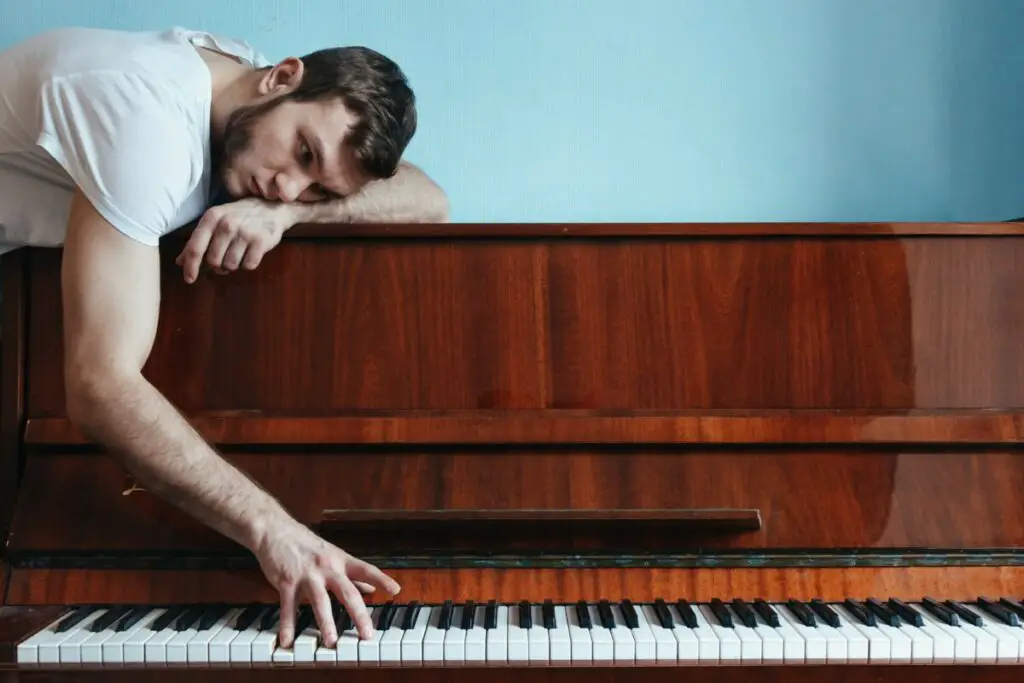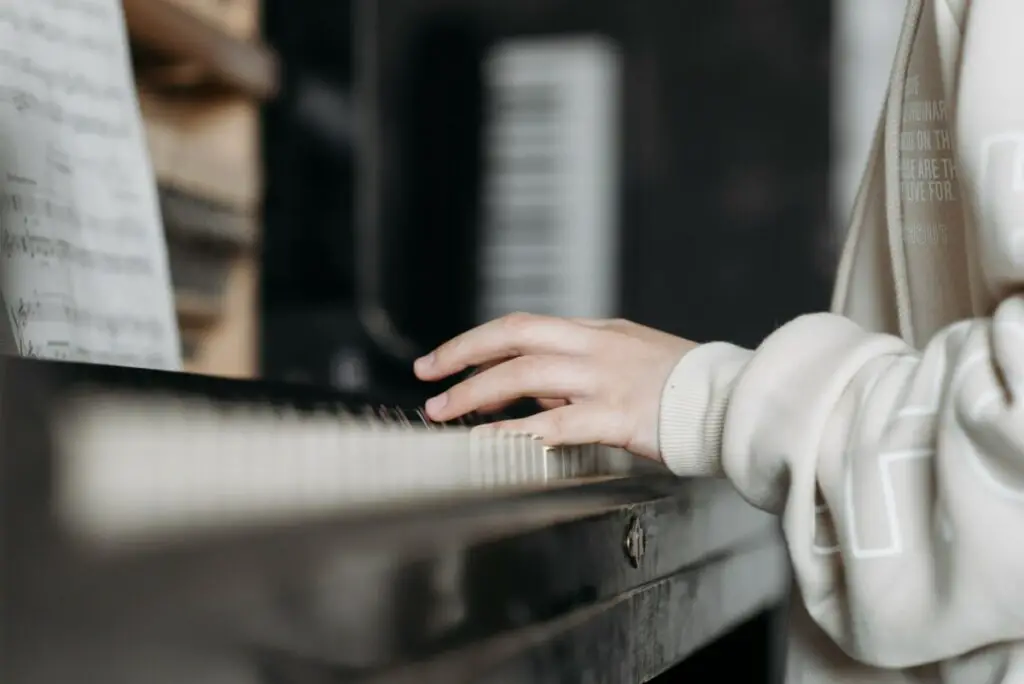This post contains affiliate links.

Are some people just not meant to play the piano? This thought may have crossed your mind at some point during your piano journey. Maybe this is because you’re having a hard time wrapping your head around some concepts or practices that are supposed to be easy to understand. For example, you may have a hard time playing with both right and left hands at the same time, or you can’t seem to be able to play with the correct rhythm.
Excluding a few exceptions, most people are able to play piano with enough time and effort put into it. Some people are naturally more talented than others so it’s important to set your own pace and not compare yourself to others.
This article will hopefully convince why YOU can play the piano and some tips on helping you achieve your goal with playing the piano.
The reasons why the piano is suitable for everyone
Unless you have some physical or mental disabilities preventing you from playing, anyone can learn how to play the piano.
The piano is arguably the easier sibling to play within the family of instruments. As long as you can hit the keys on the keyboard at the right time, you can play any song. Compared to other instruments that require difficult fingerings that will sore your fingers like a guitar, or very specific breathing techniques that leave you out of breath after the session like a trumpet.
The piano is also an easier instrument to start learning about music theory. Concepts like semitones, scales, chords can be visualized and understood directly by looking at the piano keyboard.
Stop comparing yourself to others
Everyone is different from each other, some will have more free time to practice piano compared to others that don’t due to responsibilities in life. Some people are more naturally talented and will be able to learn quicker than others. Children, for example, can learn an instrument quicker than an adult, although an adult has a higher attention span and motivation.
Although comparing yourself to others can give you the motivation to catch up to them, it can also act as a double-edged sword and discourage you if your progress isn’t at the same rate as the majority of other people.
This is why it’s important to stop comparing what you’ve achieved to what others achieved. Focus instead on if you’re a better pianist today compared to you of yesterday or you of 3 months, 1 year ago.
You need to put in more effort and time to practice
With that said, the reason why you can’t seem to improve your playing or have a hard time understanding different concepts is because you aren’t putting in the effort needed to take your playing to the next level. As Bruce Lee once said:
I fear not the man who has practiced 10,000 kicks once, but I fear the man who has practiced one kick 10,000 times.
This holds true for any other activities, including piano. Your playing isn’t good enough because you haven’t practiced hard enough. If there’s a concept that confuses you, there are resources out there on the web that are free and can help you.
We live in a digital age where everything is within our fingertips, search for videos on youtube on tips on how to play both hands at the same time, or when to sustain the pedal while playing, or find websites online like https://practicesightreading.com/ that randomly generate measures along with audio to help practice your rhythm.
A tip on how to put in the effort to practice consistently is to create a routine: think of the free time you have during the day and set out at least 15 minutes to sit down at the piano and practice with no distractions. It’s even better if you can practice at the same during the day throughout the weeks.

Setting a final goal is key
Having a goal in anything you do is important as it creates an invisible finish line that gives you the motivation needed to push through and finish it. The same is true for piano: what’s your final goal with playing the piano?
Do you want to impress family and friends? Or is there a specific piano piece that you want to be able to play? Having a goal will actively create a desire and drive to achieve it.
For me, I want to be able to play Chopin’s Ballade No.1 in G Minor. Whenever I feel lazy and I’m about to slack off, I think of the eventual day in the future where I’ll be able to play this piece and that gives me the motivation I need to sit down on the piano and practice.
Having a teacher to guide you is helpful
If you’re teaching yourself the piano, consider getting a teacher since instead of waddling aimlessly in the dark, you can have someone that can guide you which is immensely helpful.
A good piano teacher wants the best for you, they will encourage you on your journey and constantly challenge you, while adapting to your play styles and life circumstances.
A teacher can create an optimal plan that will improve your progress in playing piano and will prevent you from falling into common mistakes like wrong fingers’ placements on the piano, incorrect posture when sitting at the piano or sitting too far or too close to your piano.
A piano teacher will also give you specific regiments to practice techniques like rolling fingers on the piano, or reaching for awkward keys in a complex chord.
Furthermore, a piano teacher was at some point a student like you and will know from their experience what tips and advices to give to their students.
Don’t give up
Finally, remember to don’t give up! As long as you put in the effort, you’ll be rewarded eventually. And when you feel discouraged, just remember the reason why you pick up the piano in the first place.

